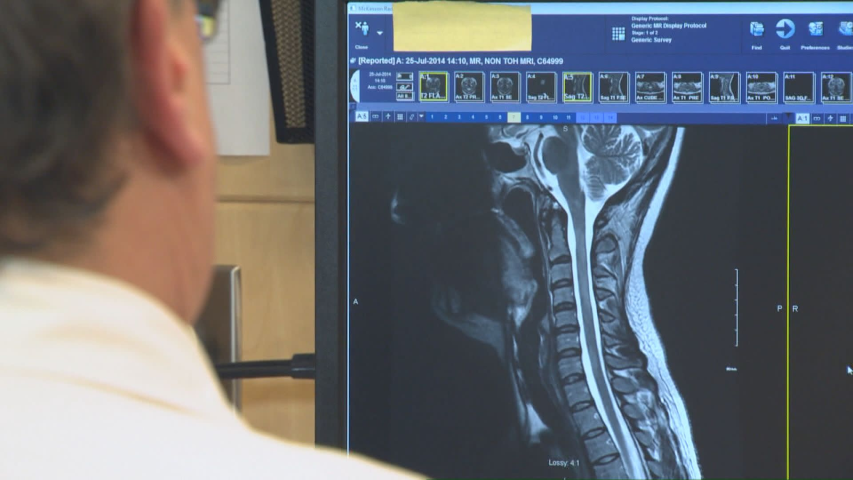
Photo from Yahoo News Canada
A recent study published in the April 24, 2024, online edition of Neurology®, the American Academy of Neurology's medical journal, suggests that immigrants to Canada may face an increased risk of developing multiple sclerosis (MS) as they spend more time in the country. Led by Manav V. Vyas, MBBS, MSc, PhD, from St. Michael’s Hospital in Toronto, Canada, the study aims to explore the potential link between length of residency in Canada and MS risk among immigrants. However, it's important to note that the study only establishes an association and does not provide conclusive evidence that prolonged residence in Canada directly causes MS.
The research delves into the phenomenon observed in previous studies where immigrants generally exhibit better health compared to long-term residents. This discrepancy is commonly attributed to the idea that healthier individuals are more inclined to immigrate. The study team seeks to investigate whether this purported lower risk of MS among immigrants diminishes over time as they adopt lifestyle habits typical of their new environment or are exposed to other environmental factors that could heighten MS risk.
The study sample comprises 1.5 million immigrants who arrived in Canada between 1985 and 2003 and had at least two years of health insurance coverage without a prior MS diagnosis. These immigrants were tracked until 2016 to observe any subsequent MS diagnoses.
During the study period, 934 individuals were diagnosed with MS, resulting in a rate of 0.44 cases per 100,000 person-years. This rate contrasts with the estimated overall MS incidence in Canada, which ranges from 15 to 17 cases per 100,000 person-years based on earlier research. "Person-years" reflects both the number of individuals in the study and the duration of their participation.
To ascertain the proportion of life spent in Canada, researchers considered the age at immigration and the duration since immigration for each participant. On average, participants had spent approximately 20% of their lives in Canada.
The findings reveal a notable trend: individuals who spent a greater proportion of their lives in Canada faced a higher risk of developing MS. Specifically, those who spent 70% of their lives in Canada were 38% more likely to develop MS compared to those who spent only 20% of their lives in the country. This association remained significant even after adjusting for various factors like age, sex, and other health conditions.
Interestingly, the study did not identify differences in MS risk based on gender or immigration class, whether family, refugee, or economic. However, the study's scope did not encompass certain environmental factors associated with MS risk.
Possible explanations for the observed increase in MS risk over time include lifestyle factors such as smoking and dietary changes, environmental factors like sunlight exposure, and biological factors like alterations in gut microbiome composition. Additionally, social determinants of health such as income, education, and access to nutritious food may render some immigrants more susceptible to these risk factors.
The study acknowledges limitations, particularly in its reliance on the healthcare system to identify new MS cases, which may be influenced by cultural, linguistic, or other factors related to immigrants' interactions with the healthcare system.
Supported by the MS Society of Canada and the Consortium of Multiple Sclerosis Centers, this study underscores the need for further research to elucidate the complex interplay between immigration, lifestyle factors, and MS risk. It also emphasizes the importance of tailoring healthcare interventions to address the evolving needs of immigrant populations in Canada.
For more information on multiple sclerosis, individuals can visit BrainandLife.org, the American Academy of Neurology's resource hub offering free patient and caregiver content focusing on neurologic diseases and brain health. Social media users are encouraged to engage with the research using the hashtags #Neurology and #AANscience.
As the world's largest association of neurologists and neuroscience professionals, the American Academy of Neurology endeavors to promote member career satisfaction and advocate for brain health for all. Neurologists specialize in diagnosing, treating, and managing disorders of the brain and nervous system, including Alzheimer's disease, stroke, epilepsy, Parkinson's disease, migraine, and multiple sclerosis.















